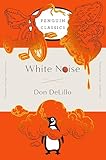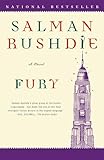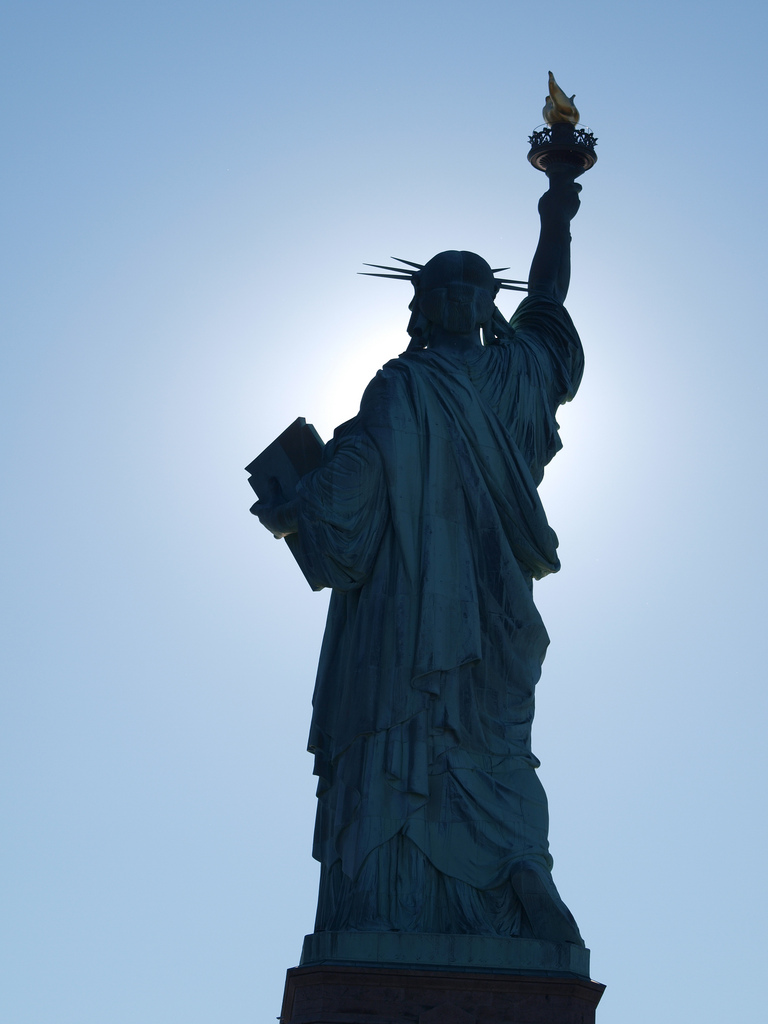Why did America put Franz Kafka in such a good mood? As his friend Max Brod remembered, Kafka worked on his ultimately unfinished novel about the U.S. with “unending delight,” a noteworthy state for someone much more likely to be brooding about the big three (guilt, your father, corporeality) or writing pained letters to a distant love. In Amerika’s most upbeat passages, Kafka seems to take pleasure in romanticizing about the “New World,” imagining the U.S. as a beacon of equality and a decent hard day’s work. In this sense, the novel echoes plenty of earlier literature on America.
But more surprisingly, Amerika anticipates a newer form of Romanticism, one that is worth considering closely, because it has since become a major presence in fiction about the U.S. Briefly put, the New World got Kafka excited about the potential benefits—really, the transformational power—of being stupid: the magic of being out of touch.
 This was something more than anti-intellectualism. This was pro-ignorance. Consider Amerika’s final chapter, in which the protagonist, a young immigrant named Karl, has reunited with friends and found a job with the “Nature Theatre of Oklahoma” after a long series of frustrating losses and wrong turns. According to Brod, this was Kafka’s favorite part of the book, a section he loved to read aloud. And although he never finished writing the chapter, he apparently would hint (with a big smile on his face) that “within this ‘almost limitless’ theatre his young hero was going to find again a profession, a stand-by, his freedom, even his old home and his parents, as if by some celestial witchery.” This was new territory for Kafka: magical thinking and happy endings.
This was something more than anti-intellectualism. This was pro-ignorance. Consider Amerika’s final chapter, in which the protagonist, a young immigrant named Karl, has reunited with friends and found a job with the “Nature Theatre of Oklahoma” after a long series of frustrating losses and wrong turns. According to Brod, this was Kafka’s favorite part of the book, a section he loved to read aloud. And although he never finished writing the chapter, he apparently would hint (with a big smile on his face) that “within this ‘almost limitless’ theatre his young hero was going to find again a profession, a stand-by, his freedom, even his old home and his parents, as if by some celestial witchery.” This was new territory for Kafka: magical thinking and happy endings.
But here’s what the happiness actually looks like: Karl and his friend Giacomo find themselves crammed into a train car on a long cross-country route. They become so giddy about the trip and the beautiful scenery they pass that they are completely oblivious to their immediate surroundings. The seats are so crowded they can barely move, and thick cigarette smoke makes it hard to breathe. Their cabinmates, who make fun of Karl’s and Giacomo’s naive excitement, pass the time by playing cards and grabbing and pinching their less-seasoned fellow travelers. Karl is stuck, in other words, in a low-paying and unpredictable job, in rough conditions, surrounded by people who get a kick out of harassing him. This trip is pretty clearly not going to be great. And the scene is able to suggest that Karl is rushing off to a blessed future only because he seems so dimly aware of what is actually taking place.
We’re familiar with the idea that ignorance is bliss, but, in the spirit of Amerika, the last century of fiction about the U.S. has flirted with the stronger notion that ignorance can heal. We will never learn exactly how Kafka’s dense traveler was going to reunite with family, friends, and home. But we now have a long list of novels that connect similar dots, turning states of density into moments of reunion and reparation.
 My favorite example is Alberto Fuguet’s Las Peliculas de mi Vida, in which the 1992 Pauly Shore movie Encino Man becomes a symbol for finding love in America. The novel relates the life story of a disillusioned Chilean-American seismologist who is torn about returning to America after many years in Chile. When he finally decides to move to California to pursue a love interest he met at the beginning of the book—she’s an American immigration attorney, as if to hammer home the idea that the journey is national as well as personal—he writes her one last note: “I’d like and am afraid and hope” that we will meet again, he says, “P.S. I did see Encino Man … I thought it was pretty bad and—nevertheless—enjoyed it.” His hopes and fears speak to the possibility that love in the U.S. could change his life. His appreciation of what is arguably the most ridiculous movie of the ’90s shows that he’s ready.
My favorite example is Alberto Fuguet’s Las Peliculas de mi Vida, in which the 1992 Pauly Shore movie Encino Man becomes a symbol for finding love in America. The novel relates the life story of a disillusioned Chilean-American seismologist who is torn about returning to America after many years in Chile. When he finally decides to move to California to pursue a love interest he met at the beginning of the book—she’s an American immigration attorney, as if to hammer home the idea that the journey is national as well as personal—he writes her one last note: “I’d like and am afraid and hope” that we will meet again, he says, “P.S. I did see Encino Man … I thought it was pretty bad and—nevertheless—enjoyed it.” His hopes and fears speak to the possibility that love in the U.S. could change his life. His appreciation of what is arguably the most ridiculous movie of the ’90s shows that he’s ready.
 Or Chimamanda Ngozi Adichie’s Americanah, in which the Nigerian protagonist, Ifemelu, falls in love for a while with Curt, a “relentlessly upbeat” American who “believed in good omens and positive thoughts and happy endings to films.” As Ifemelu explains, Curt is “admirable and repulsive in a way that only an American of his kind could be.” She eventually moves on. But her temporary attraction to Curt and the dense Americanism he represents helps the story eventually land where it does: “The best thing about America,” she claims near the end of the novel, “is that it gives you space. I like that you buy into the dream, it’s a lie but you buy into it and that’s all that matters.” Who knows what would have happened if Ifemelu had not found, albeit temporarily, this “space” of obliviousness?
Or Chimamanda Ngozi Adichie’s Americanah, in which the Nigerian protagonist, Ifemelu, falls in love for a while with Curt, a “relentlessly upbeat” American who “believed in good omens and positive thoughts and happy endings to films.” As Ifemelu explains, Curt is “admirable and repulsive in a way that only an American of his kind could be.” She eventually moves on. But her temporary attraction to Curt and the dense Americanism he represents helps the story eventually land where it does: “The best thing about America,” she claims near the end of the novel, “is that it gives you space. I like that you buy into the dream, it’s a lie but you buy into it and that’s all that matters.” Who knows what would have happened if Ifemelu had not found, albeit temporarily, this “space” of obliviousness?
 This embracing of the forcefully unintellectual appears again in the conclusion of Michael Chabon’s The Adventures of Kavalier and Clay, another novel about an immigrant’s journey to America. After a twisting and traumatic plot, Holocaust survivor Joe Kavalier has ended up living for several years as a recluse in Manhattan, unable to connect with his friends and family. And he returns to the fold by making a scene. In a stunt announced anonymously in the newspaper, he swings from the Empire State Building in an iridescent gold suit and mask.
This embracing of the forcefully unintellectual appears again in the conclusion of Michael Chabon’s The Adventures of Kavalier and Clay, another novel about an immigrant’s journey to America. After a twisting and traumatic plot, Holocaust survivor Joe Kavalier has ended up living for several years as a recluse in Manhattan, unable to connect with his friends and family. And he returns to the fold by making a scene. In a stunt announced anonymously in the newspaper, he swings from the Empire State Building in an iridescent gold suit and mask.
The stunt, channeling the comic books Joe loves (and creates), makes no sense. But it works. When Joe’s estranged wife and cousin later ask why, he responds, “I guess this was the point … for me to come back. To end up sitting here with you, on Long Island, in this house, eating some noodles.” Somehow, the act of thrilling onlookers in a golden bathing suit and boots has enabled the refugee to rejoin the family he might not otherwise have seen again. It seems we can’t stop imagining stupid entryways into American life.
 More recently, the second-generation Turkish-American Elif Batuman has styled herself as an idiot in The Idiot, an autobiographical narrative of her college years. In an interview, she refers to “moments of what felt like, in retrospect, stupidity” as distinguishing her path through Harvard to a successful career as a journalist and novelist.
More recently, the second-generation Turkish-American Elif Batuman has styled herself as an idiot in The Idiot, an autobiographical narrative of her college years. In an interview, she refers to “moments of what felt like, in retrospect, stupidity” as distinguishing her path through Harvard to a successful career as a journalist and novelist.



 We could go on: In Don Delillo’s White Noise, the goofy experiences of familial love that only seem possible in grocery stores; or the concluding image in Delillo’s Underworld, a novel steeped in issues of immigration and race in America: a billboard for orange juice that might or might not radiate divine forgiveness and plenitude after a tragic death (“they stared stupidly at the juice …’Did it look like her?’ ‘Yes.’ ‘Are you sure?’ ‘I think so’”). Salman Rushdie’s American novels are more concerned with violent emotions that can’t be escaped (see: Fury), but he alludes to the healing powers of American unknowing when, in The Golden House, he has the narrator dream that he could be reunited with his son “and jump into Doc Brown’s DeLorean and fly back to the future and be free.”
We could go on: In Don Delillo’s White Noise, the goofy experiences of familial love that only seem possible in grocery stores; or the concluding image in Delillo’s Underworld, a novel steeped in issues of immigration and race in America: a billboard for orange juice that might or might not radiate divine forgiveness and plenitude after a tragic death (“they stared stupidly at the juice …’Did it look like her?’ ‘Yes.’ ‘Are you sure?’ ‘I think so’”). Salman Rushdie’s American novels are more concerned with violent emotions that can’t be escaped (see: Fury), but he alludes to the healing powers of American unknowing when, in The Golden House, he has the narrator dream that he could be reunited with his son “and jump into Doc Brown’s DeLorean and fly back to the future and be free.”
I think this might be one of the last frontiers of Romanticism, informed by a stubborn unwillingness to give up on the idea that America is a place of new beginnings. Returns to childhood, the national volk, hedonism, intelligence: These have pretty clearly lost their punch. But ignorance, ironically enough, is a harder Romantic object to dismiss, because it’s the only mental state that can’t be accused of bad faith: It so obviously isn’t setting out to get anything done, so obviously isn’t part of a plan, how could it have an ulterior motive? Still, for perhaps obvious reasons, few literary or academic voices would admit to taking ignorance seriously. A notable exception is Avital Ronell, whose wide-ranging philosophical study, Stupidity, makes a case for its revolutionary potential. Ronell does not have much to say directly about American contexts, but at one point, referring to the blockbuster movie Forest Gump, she writes that “moral purity, American style, can be ensured only by radical ignorance.” This is, I think, the basic underlying hope that helps imagery of ignorance feel optimistic in fiction about the U.S. There’s something that feels desperate about all this fascination with American ignorance, especially at a time in which assaults against knowledge so powerfully shape our public culture—but Kafka’s brilliance was a form of desperation, too. And it will be interesting to see where the desperate Romanticism he foresaw ends up.
Image: Flickr/Rakkhi Samarasekera









